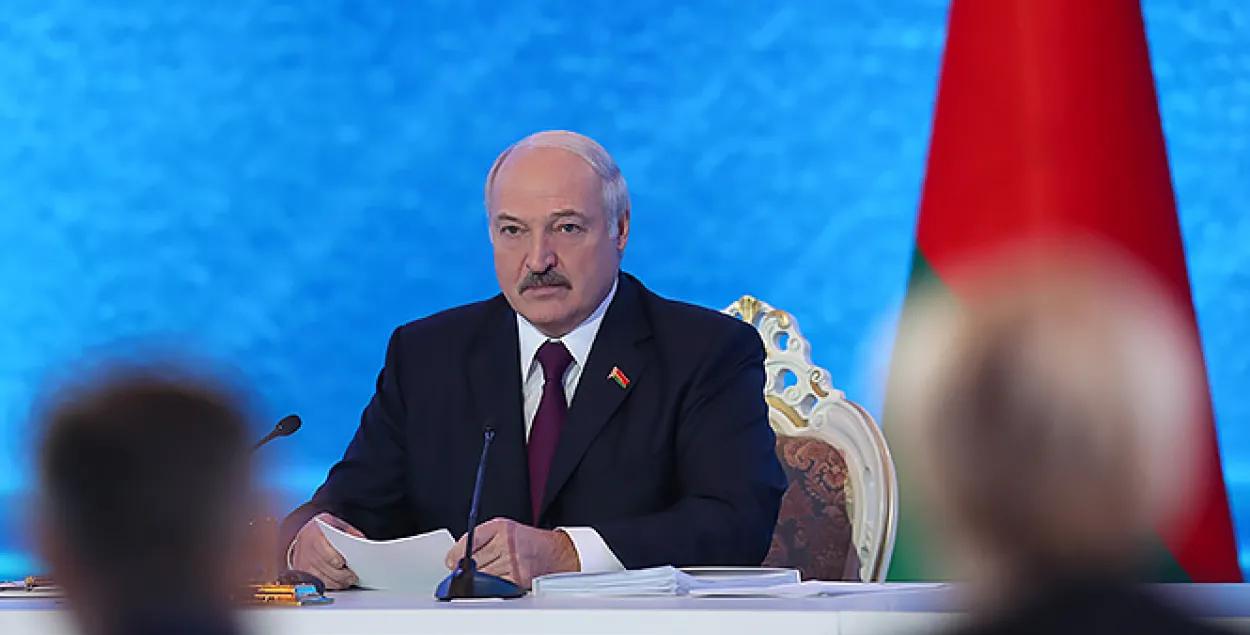Lukashenka signs information security concept

Belarus President Aliaksandr Lukashenka on 18 March signed the Security Council's resolution “On the concept of information security of the Republic of Belarus,” state-run news agency BelTA reports quoting the press office of the Belarusian leader.
State administration bodies and other organizations have been instructed to navigate by the provisions of the concept in practical activities. The results should be reflected in the annual report to the Belarus president on the state of affairs in the national security and the measures to strengthen it.
The concept has taken into account all the remarks and proposals of the members of the Security Council which were made during the meeting to consider the draft concept on 12 March 2019. In particular, a special emphasis is made on the continuity of the concept in relation to the fundamental concept of national security. Measures have been taken to strengthen the provisions on the training of specialists in information security, the use of global rankings for the assessment of the current conditions, protection of the commercial, professional and banking secrecy. It specifies that absolutely all public administration bodies and organizations will be able to respond to the risks and challenges in the information sphere within the area of their responsibilities as fully and promptly as possible.
Belarus' concept of information security is the system of official views on the essence and content of the efforts to maintain national security in the information sphere which highlights strategic goals and priorities in information security. The concept takes into account Belarus' geopolitical interests, its place and role in the modern world. It takes into account agreements on cooperation in ensuring information security of the CIS member states, the CSTO member states as well as bilateral agreements and other commitments of Belarus in the area of international information security.
The concept takes into account the main provisions of acts of international organizations, including resolutions of the UN General Assembly and OSCE recommendations. The document provides for a comprehensive approach to information security, creates a methodological basis for strengthening it, serves as a foundation for developing the state policy, working out measures to improve the system of information security, constructive interaction, consolidation of efforts and higher efficiency of the work to protect national interests in the information sphere, promotes Belarus' comprehensive integration in the system of ensuring international information security on the basis of national priorities.
The concept reflects modern challenges and threats that emerge in the information sphere and pose danger to the constitutional foundation and operation of states such as manipulation of the collective consciousness, discrediting of ideals and values, erosion of national sovereignty, instability of information infrastructure, etc. Fundamentally, the concept is a modern political act focused on the all-round development of Belarus as a sovereign, democratic, social state. It specifies that the security of the information sphere is ensured, first of all, through its development.
The document is meant for public administration bodies, communities, citizens, allies and partners of Belarus, other subjects of international relations. It is especially important that Belarus is positioned as a peaceful state relying on the civilized resolution of all issues of global and regional security, persistent and efficient development of the human potential. The concept envisages that all state administration bodies and organizations, civil society, business sector, representatives of the scientific, educational and cultural communities should be involved in the maintenance of information security.
The concept positions Belarus as a peaceful state relying on the civilized resolution of all issues of global and regional security, persistent and efficient development of the human potential. The concept envisages that all state administration bodies and organizations, civil society, business sector, representatives of the scientific, educational and cultural communities should be involved in the maintenance of information security.
















